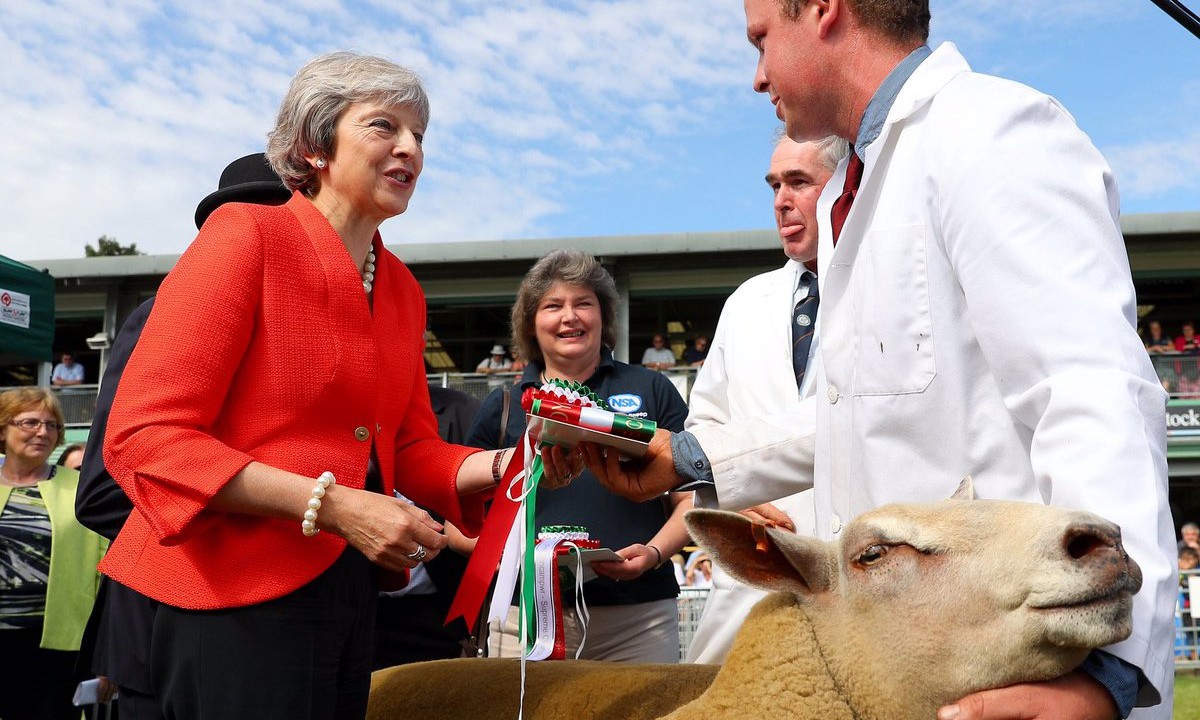The UK’s farming bodies have warned May’s resignation means yet more uncertainty and a return to the possibility of a ‘no-deal’ Brexit for rural businesses.
Others, however, hoped it would make the revocation of Article 50 more likely.
Speaking this morning from Downing Street, May said it had been the “greatest honour of her life” to have served as the second female Prime Minister of the United Kingdom and added that she would not be the last woman to hold the post.
“Ever since I first stepped through the door behind me as PM I have striven to make the UK a country that works – not just for a privileged few but for everyone – and to honour the result of the referendum,” she said.
I negotiated the terms of our exit [from the EU] and I have done everything I can to convince MPs to back that deal – sadly I have not been able to do so.
“It is now clear to me that it is in the best interest of the country for a new Prime Minister to lead that effort.”
‘The October 31 deadline remains’
May will resign as Conservative leader on Friday, June 7 with the process of electing a new Prime Minister set to being next week.
However, several of the UK’s most prominent farming bodies warned a rocky path remained ahead.
Tim Breitmeyer, president of the Country Land and Business Association (CLA), said: “For many, this will have come as no surprise.
“Theresa May’s inability to reach a consensus within the Conservative Party, let alone Parliament, was eventually going to come to a head.
“The upcoming leadership contest will not alter the political arithmetic however, and the Brexit deadline of October 31 still looms large.
While the focus of the Westminster bubble may shift, rural businesses will be looking on concerned that progress towards reaching a workable agreement with the EU has stalled.
“Whoever emerges as Prime Minister will need to build a future relationship with the EU which offers as free and frictionless trade as possible and continued access to labour.
“Allowing the next five months to drift towards a ‘no-deal’ Brexit, with its immediate barriers to trade, is a scenario we need to avoid.”
George Dunn, chief executive of the Tenant Farmers’ Association (TFA) agreed, adding that he also feared that a ‘no-deal’ Brexit was again becoming more likely.
“Many of the candidates lining themselves up to become the next Prime Minister have a hardline Brexit stance, and we just worry that the no-deal scenario is very much on the agenda again.
We would appeal to whoever takes over the reins to understand the need for us to leave on terms that allow for a transition rather than a ‘cliff-edge’ effect.
British Veterinary Association president Simon Doherty, who represents more than 18,000 UK vets, said it was crucial that regardless of who takes up the role next, that steps are made to deal with some of the industry’s biggest Brexit concerns.
“While the country faces political uncertainty, our overarching emphasis has always been that any Brexit scenario must maintain or improve existing animal health, animal welfare, public health, veterinary workforce, and environmental protection standards,” he said.
“We know that our members are particularly worried about workforce shortages and capacity in case of a no-deal Brexit, so we will be continuing our campaign to restore vets to the shortage occupation list.”
A chance to end the stalemate
Similarly, National Sheep Association chief executive Phil Stocker welcomed the change of leadership as a chance to move Brexit discussions forward but reiterated the importance of accessing European markets for British sheep producers.
“In a way, this will allow us to move on from what has been a stalemate for a long time,” he said.
“But we worry that the potential candidates to take over could be much stronger Brexiteers.
“If we are not careful, they could leave us to leave without a deal – that would be catastrophic for the UK’s sheep industry.”
Hopes to revoke Article 50
However, other organisations were more positive, saying fresh leadership paves the opportunity for Article 50 to be revoked.
A spokesman for the Farmers’ Union of Wales said: “The FUW has had many meetings with the outgoing Prime Minister in the last couple of years, but did not find them at all productive.
“There was a remoteness that came from her focus on a single-minded agenda of ‘Brexit means Brexit’.
“Mrs. May was not prepared to engage and although our recommendations to delay Article 50, which she rebutted, did eventually come to pass.
Our call for revocation – which the Government has rejected – is probably more likely now than ever.
“A future PM must be prepared to take stock, to deliver an outcome that minimises any damage to the country. That will take time and will also require greater empathy and consensus building than that which Theresa May demonstrated.”

